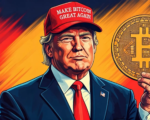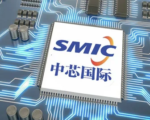Former President Donald Trump has called for the repeal of the landmark 2022 bipartisan CHIPS and Science Act, which allocated $52.7 billion in subsidies for semiconductor manufacturing and production. Trump, in a speech to Congress on Tuesday, criticized the act, describing it as a “horrible, horrible thing” and argued that the money allocated had not been effectively spent. He urged lawmakers to cancel the CHIPS Act and redirect the remaining funds towards reducing the national debt.
The CHIPS Act, signed by President Joe Biden in August 2022, includes $39 billion for U.S. semiconductor manufacturing, along with $75 billion in government lending authority aimed at bolstering the country’s tech industry and addressing national security concerns related to semiconductor imports. The law has been praised by Commerce Secretary Howard Lutnick, who previously expressed his desire to review the awards finalized under Biden’s administration, which facilitated major semiconductor firms such as Samsung, Intel, Taiwan Semiconductor Manufacturing Company (TSMC), and Micron in establishing factories in the U.S.
Trump’s remarks mark his strongest criticism of the CHIPS Act, suggesting that avoiding new tariffs would be sufficient to encourage domestic semiconductor production. Critics, however, argue that the law is crucial for securing investments, such as TSMC’s $100 billion plan to build five chip facilities in the U.S., which would create tens of thousands of jobs. New York Governor Kathy Hochul highlighted that Micron’s $100 billion investment in Central New York, which could generate 50,000 jobs, was a direct result of the CHIPS Act.
While Trump’s position may undermine the funding for key semiconductor projects, officials are concerned that repealing the law could harm Arizona’s semiconductor industry and jeopardize job creation. Recent reports also indicated significant layoffs within the U.S. Commerce Department, which oversees the semiconductor subsidies, raising questions about the future of the industry under a potential new administration.















